As Donald Trump prepares to assume the presidency for a second time, the United States finds itself at a critical juncture. Trump’s return represents the culmination of years of societal division, economic inequality, and political dysfunction, all of which have eroded public trust in democratic institutions. While his comeback signals the enduring appeal of his populist rhetoric, it also serves as a stark reminder of the systemic failures that allowed him to rise to power in the first place.
The Biden administration, which many hoped would mark a turning point for the nation, fell short in several key areas, paving the way for Trump’s resurgence. From his unwavering support for Israel during controversial military campaigns to his pardon of his son, Hunter Biden, Biden’s presidency alienated large segments of the electorate and raised questions about his political integrity. Meanwhile, long-standing rumours of cognitive decline, ultimately confirmed during his disastrous final debate against Trump, undermined the confidence of even his staunchest supporters.
Trump’s renewed dominance, however, is not confined to domestic politics. His influence extends beyond the United States, reshaping global alliances and emboldening authoritarian figures worldwide. In the UK, allies like Nigel Farage amplify his rhetoric, linking Trumpist populism to the ongoing destabilisation of British politics.
This article examines the missteps of the Biden administration and the broader socio-political dynamics that led to Trump’s return. It explores the dangerous alignment between authoritarianism and corporate power, particularly the role of Big Tech in reshaping democracy, and warns of a dystopian future where environmental degradation, political repression, and technological monopolisation threaten the very fabric of society. As the world faces another four years under Trump, resistance is not only a political imperative; it is a moral one.
The Unfulfilled Promise of Renewal
Joe Biden’s presidency began with a promise to heal a deeply divided nation, rebuild trust in democratic institutions, and restore America’s standing on the global stage. After the chaos of Trump’s first term, Biden presented himself as a steady, experienced leader capable of uniting a fractured electorate. However, while his administration achieved notable successes, such as significant infrastructure investment and prescription drug cost reductions, his leadership fell short in key areas. The Guardian (2025) reports that while Biden oversaw the creation of nearly 17 million jobs, these achievements were overshadowed by persistent issues like inflation and a polarising immigration crisis, which eroded confidence in his administration.
Perhaps the most consequential misstep of Biden’s presidency was his unwavering support for Israel during its military actions in Gaza, which resulted in thousands of Palestinian deaths. Younger and more progressive Americans, already disillusioned with the Democratic Party, viewed his position as complicit in humanitarian atrocities. New York Magazine (2025) notes that this alienated many voters, particularly within the Democratic base, who had hoped for a more balanced and ethical approach to U.S. foreign policy.
Toward the end of his term, two major controversies further damaged Biden’s credibility. First, his decision to pardon his son, Hunter, became a defining moment of his presidency. While some argued the pardon was a father’s act of protection against an incoming hostile administration, the optics were devastating. Biden had explicitly stated he would not intervene in Hunter’s legal troubles, making this decision appear hypocritical and damaging to the integrity of his presidency (The Guardian, 2025). The question of why Hunter Biden received special protections when millions of ordinary Americans do not will be a stain on Biden’s legacy.
Second, long-standing rumours about Biden’s cognitive health were finally confirmed after a disastrous debate performance against Trump. For years, Democrats had dismissed allegations of Biden’s cognitive decline as Republican propaganda. However, during the debate, Biden appeared visibly lost, at one point struggling to complete sentences and recalling key points of his platform. Soon after, his team admitted that Biden had been suffering from "cognitive decline" in his final year as president. The New York Post (2025) reported an incident where Biden forgot the details of a major executive order he had signed just weeks earlier, leaving voters and political allies questioning his fitness for office.
These controversies stood in stark contrast to Trump, who portrayed himself as strong, decisive, and in control. Just weeks after Biden’s faltering debate performance, Trump survived an assassination attempt during a campaign rally in Pennsylvania. Trump’s unscathed recovery and his ability to use the incident to project strength only solidified his narrative of being a leader with unmatched resilience. As reported by the Times of India (2024), Trump’s response reinforced his reputation as a fighter, further deepening the perception of Biden as frail and ineffective.
Biden’s presidency, though marked by some policy achievements, ultimately failed to deliver on its promise of renewal. By alienating parts of his base, mishandling key controversies, and allowing his personal challenges to overshadow his leadership, Biden inadvertently paved the way for Trump’s resurgence. The lessons of his administration highlight the dangers of failing to address systemic grievances and the enduring appeal of populist rhetoric in times of uncertainty.
The Court of King Trump: Loyalty Above All
Donald Trump’s resurgence has solidified a culture of loyalty and fear within his political orbit, creating what can only be described as the ‘Court of King Trump.’ His leadership style, built on personal allegiance rather than democratic norms, has fostered an environment where dissent is punished, and sycophancy is rewarded. The recent denunciations of former Vice President Mike Pence and conservative megadonor Charles Koch exemplify this dynamic. In a public tirade, Trump accused Pence of being "weak" and labelled Koch as disloyal, warning that anyone aligning with these figures was “not welcome” in his administration (New York Post, 2025). This culture of purging dissent ensures that Trump’s power remains unchallenged, solidifying his grip over the Republican Party and its broader political base.
At the heart of Trump’s leadership style is a transactional approach that prioritises personal loyalty above all else. This ‘courtier politics’ echoes the dynamics of historical monarchies, where loyalty to the ruler often eclipsed institutional stability or broader governance concerns. Those who serve Trump do so under the constant threat of expulsion or public humiliation, ensuring that only the most subservient voices remain within his inner circle. This dynamic has effectively turned the Republican Party into a vehicle for Trump’s personal ambitions, marginalising traditional conservative voices and fostering a party culture wholly dependent on its leader’s whims.
Trump’s influence, however, extends beyond the United States. Figures like Nigel Farage have amplified his rhetoric and strengthened his ties to the UK, linking Trumpist populism to ongoing instability in British politics. Farage, a long-time Trump ally, has recently offered to act as an intermediary between Trump’s administration and the UK, a role that underscores his commitment to deepening the transatlantic bond between Trumpism and British nationalism (The Scottish Sun, 2025). This alignment has significant implications for UK politics, as it risks entrenching the polarisation and divisive tactics that have characterised Trump’s approach to governance.
Farage’s public embrace of Trump serves a dual purpose. Domestically, it bolsters his position as a champion of populist politics in Britain, drawing on Trump’s global brand to legitimise his own divisive rhetoric. Internationally, it strengthens Trump’s position as a global figurehead for right-wing populism, creating a feedback loop where Trumpist ideas continue to gain traction in allied nations. This transnational alignment poses a profound threat to democratic norms, as it normalises the erosion of institutional checks and balances and promotes a governance style rooted in personal loyalty and authoritarian tendencies.
The ‘Court of King Trump’ is emblematic of a broader shift in global politics, where populist leaders prioritise loyalty over competence and suppress dissent to maintain power. As Trump prepares for his second term, this culture of fear and allegiance will likely deepen, further eroding the principles of accountability and transparency that underpin democratic governance.
A Sudden Shift in Perception
Even before taking office for his second term, Donald Trump has managed to reshape public perception of his leadership, positioning himself as a decisive and pragmatic figure capable of achieving what others could not. Two key developments have played a significant role in this shift: his self-proclaimed success in brokering a fragile ceasefire between Israel and Hamas, and his intervention in preserving TikTok for American audiences.
The ceasefire, which brought an end to over a year’s worth of brutal violence in Gaza, was hailed as a breakthrough in a region long plagued by intractable conflict. Reuters (2025) reports that Trump took full credit for the agreement, casting himself as a unique force in diplomacy—someone able to bring both sides to the table where others had failed. This stands in stark contrast to Joe Biden’s perceived inability or unwillingness to intervene during earlier escalations. For many, Trump’s involvement reinforced the image of a leader who acts decisively, even when the issues are fraught with complexity and controversy. While the ceasefire’s long-term sustainability remains uncertain, the optics of the moment played directly into Trump’s hands, bolstering his narrative as a statesman capable of delivering results.
At the same time, Trump’s role in preserving TikTok for American audiences has further cemented his appeal among younger voters and digital-first generations. Facing a potential ban due to security concerns under Biden’s administration, TikTok was on the brink of being removed from the U.S. market, sparking outrage among its millions of users. Trump’s intervention not only saved the platform but allowed him to present himself as a champion of free speech and digital freedoms. Trump clearly framed the narrative: I’m not like Biden—I don’t believe in silencing people.
This narrative of defending free expression also allowed Trump to position himself as an opponent of Big Tech overreach. While his administration had previously aligned with corporate interests, this strategic reframing allowed him to capitalise on growing public distrust of monopolistic tech companies. By stepping in to ‘save’ TikTok, Trump cleverly balanced populist anti-corporate rhetoric with actions that resonated with everyday users of the platform. This move was particularly effective in winning over younger demographics who had grown disillusioned with both the Democratic Party and the corporate-dominated landscape of Silicon Valley.
The combination of these two achievements—real or perceived—has reshaped Trump’s image in the eyes of many. By claiming credit for peace in the Middle East and portraying himself as the saviour of a globally beloved social media platform, Trump has controlled the narrative to project strength, especially when juxtaposed with Biden’s faltering image during his final year. These developments serve as a powerful reminder of how Trump’s mastery of optics and messaging continues to shape political realities, both in the United States and beyond.
Tech Titans and the New Corporatism
Donald Trump’s return to power has brought renewed attention to the troubling intersection of corporate influence and authoritarian politics. During his second inauguration, tech giants such as Meta, Amazon, and Microsoft made substantial contributions to his inauguration fund, raising questions about their motives and the growing alignment between Big Tech and political power (The Verge, 2025). While corporate donations to political figures are not unusual, the scale and timing of these contributions under Trump’s leadership reveal a deeper, more insidious dynamic.
Critics argue that these financial overtures are not simply a hedge against regulatory scrutiny but part of a broader strategy to entrench corporate monopolies in an era of deregulation. Trump’s first term set the stage for this, with his administration rolling back antitrust enforcement and adopting policies that favoured tech giants. Now, as he prepares to re-enter the Oval Office, the alliance between Big Tech and Trumpism appears stronger than ever, creating a dynamic that privileges corporate power at the expense of public accountability.
This nexus of corporatism and authoritarianism evokes historical parallels with fascist regimes, where state and corporate interests merged to reinforce elite control. In today’s context, the "Tech Bros"—a term often used to describe figures like Elon Musk, Peter Thiel, and David Sacks—embody this trend. These leaders have advanced a vision of society that prioritises technological progress and profit over equity and democracy. Projects like Musk’s plans for space colonisation or Zuckerberg’s push for the Metaverse reflect a dystopian future where the wealthy elite isolate themselves in technologically advanced paradises, leaving the majority to grapple with an increasingly inequitable and environmentally unstable world.
The Metaverse, in particular, serves as a powerful metaphor for the dangers of this new corporatism. Marketed as a utopian digital realm where people can connect and innovate, it is ultimately a tool for data extraction, surveillance, and profit. By creating virtual spaces that mimic real-world interactions, tech companies are poised to further monetise human behaviour, reducing individuals to mere consumers within a tightly controlled ecosystem. This model not only deepens existing inequalities but also consolidates power in the hands of a few unelected corporate executives.
The implications for democracy are profound. In a world where tech platforms control the flow of information, shape public discourse, and influence elections, the ability of governments to regulate these entities is rapidly diminishing. Trump, who has long benefitted from social media platforms amplifying his message, is uniquely positioned to exploit this dynamic. His rhetoric about protecting free speech, while paradoxically encouraging the suppression of dissent, aligns seamlessly with the interests of Big Tech, which thrives in an environment of weak oversight and limited accountability.
The alliance between Trump and the tech sector signals a new phase of corporate authoritarianism, one in which the boundaries between state power and corporate dominance blur. This dangerous alignment threatens to erode the foundational principles of democracy, creating a system where profit and control are prioritised over fairness and freedom. Without intervention, this convergence of political and corporate power risks entrenching a dystopian hierarchy where the few dictate the lives of the many.
The Dystopian Horizon
Under Trump’s second term, the convergence of authoritarianism, corporate monopolisation, and climate denialism threatens to dismantle the fragile balance of democracy and human dignity. The promises of technological innovation and economic progress are increasingly exposed as tools for deepening inequality, fostering environmental collapse, and consolidating power in the hands of a wealthy elite.
Hannah Arendt (1951) warned of systems that prioritise efficiency and control over humanity, describing how authoritarian structures strip individuals of their agency and dignity. In the context of Trump’s America, her insights resonate profoundly. The unchecked power of tech billionaires like Elon Musk and Mark Zuckerberg, who increasingly operate as unelected oligarchs, exemplifies the erosion of democratic principles. Their projects, from space colonisation to artificial intelligence, are framed as solutions to humanity’s problems but are often designed to insulate the elite from the very crises they perpetuate—whether environmental disasters or economic instability.
Compounding this dystopian vision is Trump’s well-documented climate change denialism. During his first term, Trump referred to climate change as a "hoax" (BBC, 2019), withdrew the U.S. from the Paris Climate Agreement, and weakened over 100 environmental protections, including the Clean Power Plan (National Geographic, 2016). Now, as he returns to power, his administration shows no signs of reversing course. His policies embolden industries to exploit natural resources with impunity, accelerating environmental degradation and exacerbating the effects of climate change.
The consequences of climate denialism are disproportionately borne by marginalised communities. Rising sea levels, extreme weather events, and resource scarcity have already begun to displace millions worldwide, and the divide between the wealthy and the vulnerable is widening. While the elite retreat to technologically advanced enclaves or explore space colonisation as a means of escape, the majority are left to face the brunt of environmental collapse. Trump’s policies not only ignore these realities but actively exacerbate them, ensuring that future generations will inherit a planet on the brink of catastrophe.
The dystopian horizon Trump represents is not just a cautionary tale—it is an urgent call to action. Without significant resistance, this vision of society risks becoming an irreversible reality, where democratic governance is replaced by corporate authoritarianism and environmental devastation.
A Call to Vigilance and Resistance
Donald Trump’s second term and the rise of techno-feudalism demand urgent and coordinated resistance. This fight is not only against Trump himself but also against the systemic forces that enable and empower leaders like him. The convergence of authoritarianism, corporate dominance, and environmental neglect represents a critical moment in history—a moment that calls for collective action to preserve democracy, equity, and the planet itself.
Reclaiming the narrative is the first and most vital step. Trump’s rhetoric of free speech and individual liberty must be challenged for what it is: a smokescreen for consolidating power and silencing dissent. While Trump paints himself as a champion of free expression, his actions often tell a different story. From demonising the press as "the enemy of the people" to fostering a culture of loyalty that punishes dissent, Trump’s version of free speech serves his authoritarian agenda rather than the broader public good.
Grassroots organising is essential in countering these forces. Local movements have historically been at the forefront of social change, and their role is more critical than ever. Initiatives that promote community resilience, economic justice, and environmental sustainability can undermine the despair and alienation that authoritarian leaders exploit. These efforts must also challenge the creeping normalisation of corporate overreach, demanding accountability from tech giants who profit from the erosion of public trust and democratic norms.
Independent journalism and alternative media platforms will also play a crucial role. In an era of disinformation, platforms like Substack and independent blogs have become vital spaces for counter-narratives that challenge corporate and political propaganda. Amplifying diverse voices and fostering informed public dialogue will be key to resisting the consolidation of power in both the political and technological spheres.
Global solidarity is equally important. The interconnected nature of today’s challenges—climate change, wealth inequality, and the erosion of democratic values—demands a unified response. Figures like Nigel Farage, who amplify Trump’s rhetoric and align with his authoritarian populism, must be met with robust opposition. In the UK and beyond, alliances rooted in democratic principles must counteract the spread of Trumpist ideologies that normalise the undermining of institutional checks and balances.
This is not merely a political fight—it is a moral imperative. The survival of democracy, the preservation of human dignity, and the future of the planet all hang in the balance. If we fail to act, the forces of authoritarianism and corporatism will only deepen their hold on society, at worst leaving a legacy of inequality, repression, and environmental devastation.
But if we rise to the challenge, we can create a future rooted in justice, equity, and shared humanity. The time to act is now.
References
Arendt, H. (1951) The Origins of Totalitarianism. New York: Harcourt.
BBC (2019) ‘Trump calls climate change a hoax’, BBC News, 15 February. Available at: https://www.bbc.com/news/world-us-canada-47261908 (Accessed: 19 January 2025).
National Geographic (2016) ‘Trump’s environmental rollbacks’, National Geographic, 10 November. Available at: https://www.nationalgeographic.com/environment/article/trump-administration-rollbacks (Accessed: 19 January 2025).
New York Magazine (2025) ‘Biden’s legacy and Israel’, New York Magazine, 18 January. Available at: https://nymag.com/news/2025-biden-legacy (Accessed: 19 January 2025).
New York Post (2025) ‘Biden’s cognitive decline revealed’, New York Post, 16 January. Available at: https://nypost.com/2025/01/16/biden-cognitive-health (Accessed: 19 January 2025).
Reuters (2025) ‘Trump takes credit for ceasefire in Gaza’, Reuters, 15 January. Available at: https://www.reuters.com/world/middle-east/trump-ceasefire-credit-2025 (Accessed: 19 January 2025).
The Guardian (2025) ‘Biden’s final year: a mixed legacy’, The Guardian, 18 January. Available at: https://www.theguardian.com/us-news/biden-final-year-mixed-legacy (Accessed: 19 January 2025).
The Scottish Sun (2025) ‘Farage offers to be Trump’s UK go-between’, The Scottish Sun, 10 January. Available at: https://www.thescottishsun.co.uk/news/8888888/farage-trump-uk (Accessed: 19 January 2025).
The Verge (2025) ‘Big Tech donations to Trump raise questions’, The Verge, 9 January. Available at: https://www.theverge.com/2025/01/big-tech-donations-trump (Accessed: 19 January 2025).
Times of India (2024) ‘Trump survives assassination attempt’, Times of India, 12 December. Available at: https://timesofindia.indiatimes.com/world/us/trump-survives-assassination-attempt-december-2024/articleshow/88266225.cms (Accessed: 19 January 2025).




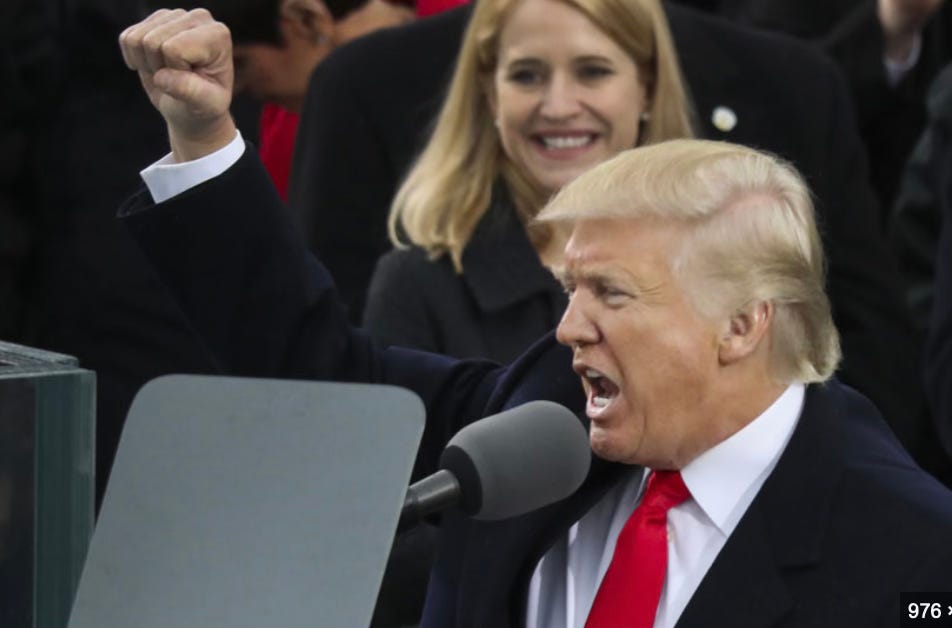
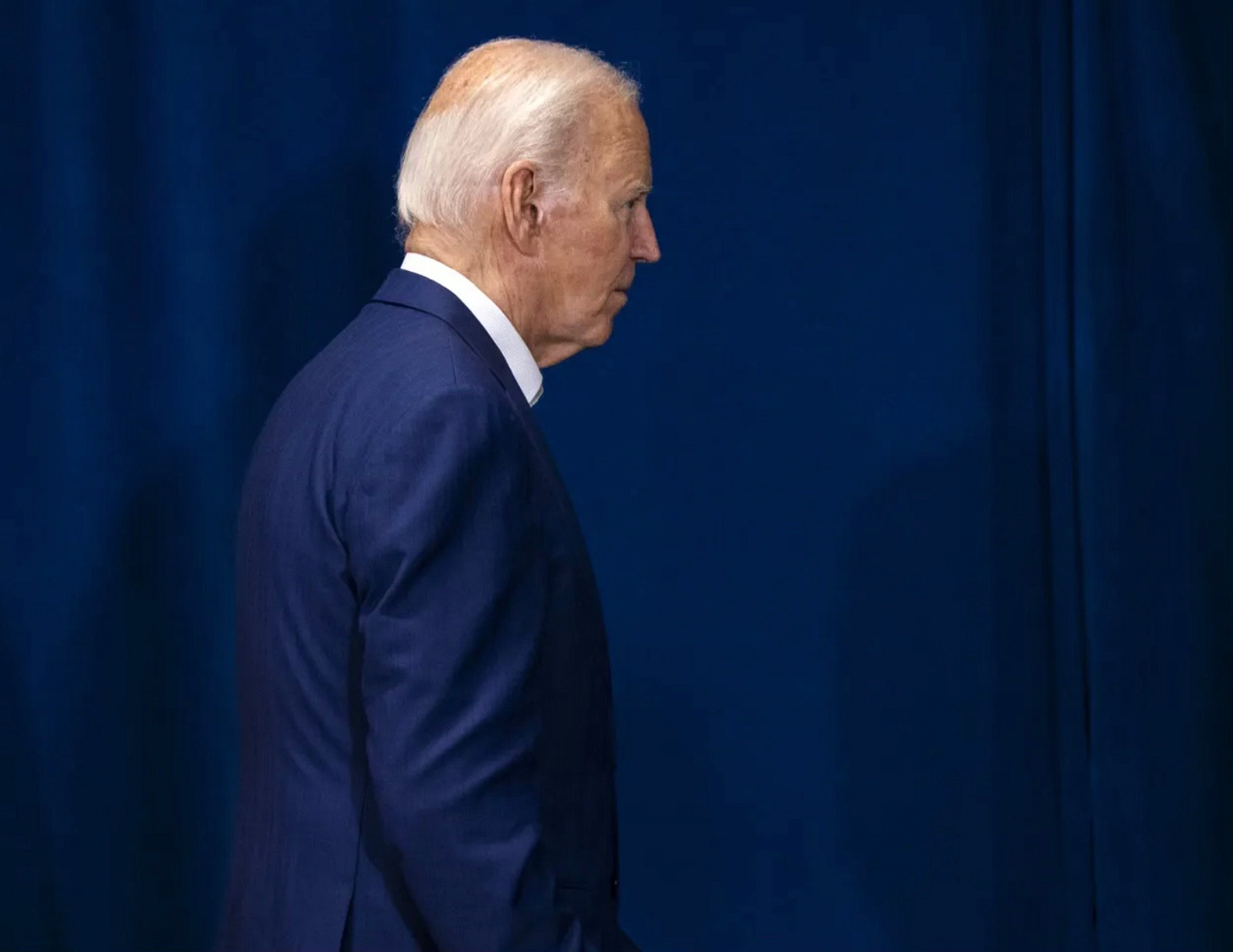
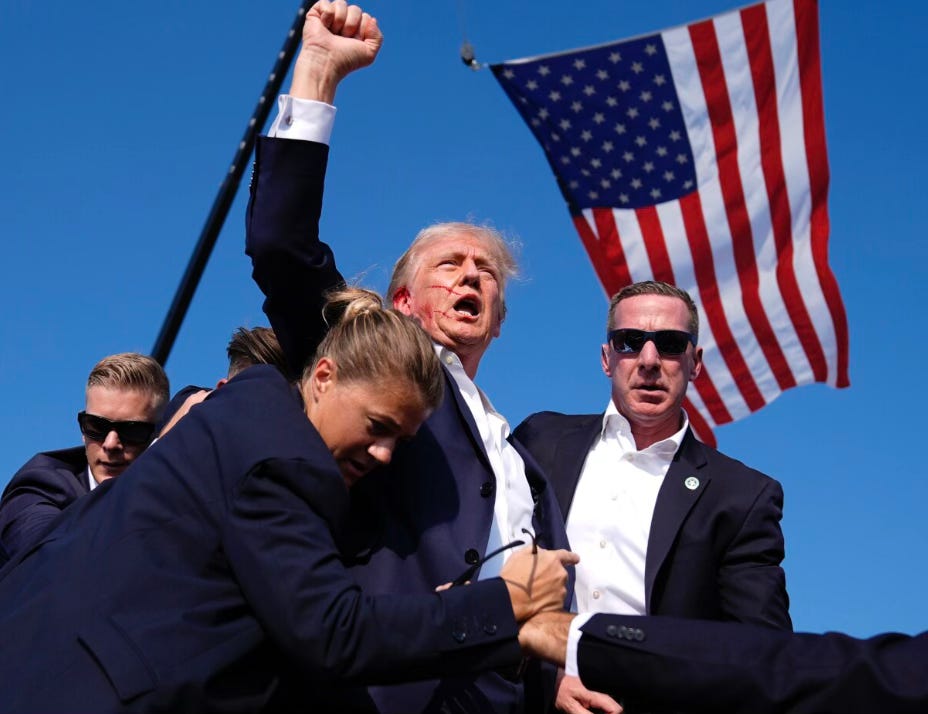
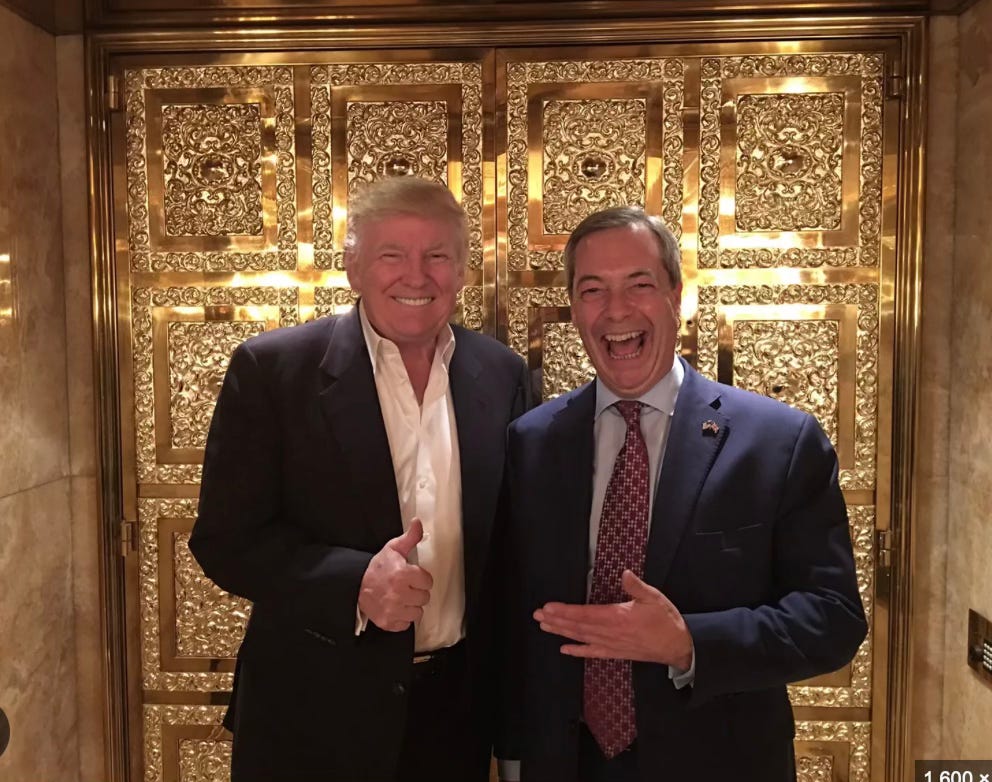
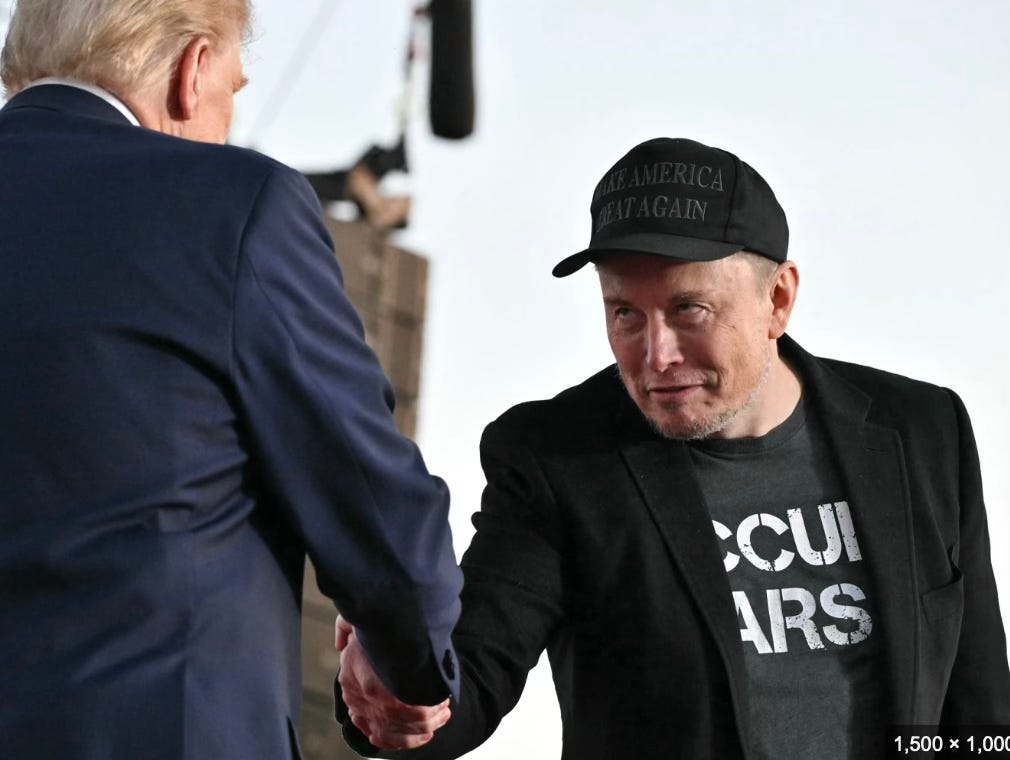
Yes, we're seeing unprecedented events the world over. It really speaks volumes about the failures of Neoliberalism: addressing systemic issues like inequality and child poverty.
Very similar to what is happening here and. Europe.